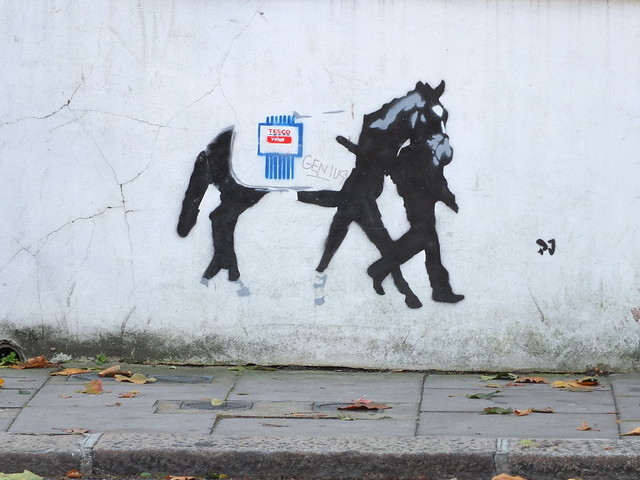Supply chains? Yawn, right?
While supply chains may seem boring, they are of vital importance to organisations, and their proper management can make, or break companies.
Some recent examples of where poorly managed supply chains caused at best, serious reputational damage for companies include the Apple Computers child labour and workers suicide debacle; the Tesco horse meat scandal; and Nestlé’s palm oil problems.
What does this have to do with Cloud computing?
Well, last week, here in GreenMonk we published a ranking of cloud computing companies and their use of renewables. Greenqloud, Windows Azure, Google, SAP and Rackspace all come out of it quite well.
On the other hand, IBM and Oracle didn’t fare well in the study due to their poor commitment to renewables. But, at least they are reasonably transparent about it. Both organisations produce quite detailed corporate responsibility reports, and both report their emissions to the Carbon Disclosure Project. So if you are sourcing your cloud infrastructure from Oracle or IBM, you can at least find out quite easily where the dirty energy powering your cloud is coming from.
Amazon however, does neither. It doesn’t produce any corporate responsibility reports and it doesn’t publish its emissions to the Carbon Disclosure Project. This is particularly egregious given that Amazon is, by far the largest player in this market.
Amazon’s customers are taking a leap of faith by choosing Amazon to host their cloud. They have no idea where Amazon is sourcing the power to run their servers. Amazon could easily be powering their server farms using coal mined by Massey Energy, for example. Massey Energy, as well as having an appalling environmental record, is the company responsible for the 2010 West Virginia mining disaster which killed 29 miners, or Amazon could be using oil extracted from Tar sands. Or there could be worse in Amazon’s supply chain. We just don’t know, because Amazon won’t tell us.
This has got to be worrisome for Amazon’s significant customer base which includes names like Unilever, Nokia and Adobe, amongst many others. Imagine what could happen if Greenpeace found out… oh wait.
Just a couple of weeks ago US enterprise software company Infor announced at Amazon’s Summit that it plans to build it’s CloudSuite offerings entirely on Amazon’s AWS. As I tweeted last week, this is a very courageous move on Infor’s part
Kudos to @cpinfor – very courageous move betting @infor’s CloudSuite on AWS, despite AWS’ lack of supply chain transparency
— Tom Raftery (@TomRaftery) April 1, 2014
All the more brave given that Infor will be using Amazon to host the infrastructure of Infor’s own customer base. “Danger, Will Robinson!”
This lack of supply chain transparency is not sustainable. Amazon’s customers won’t tolerate the potential risk to their reputations and if Amazon are unwilling to be more transparent, there are plenty of other cloud providers who are.
Image credits failing_angel


You cite Massey Tom and yes, the share plummeted after the accident but they recovered over time and the company was eventually acquired for $69.33, 21% above the closing price at time of acquisition and well above the pre-accident stock price of $54.
I sense that as always, ‘not sustainable’ has to be tempered by economic reality and so far at least, there has been precious little appetite for structural and transformational change.
Nice article. When will we realise
that at the end of the day we can’t eat money, and the earth’s resources are finite.